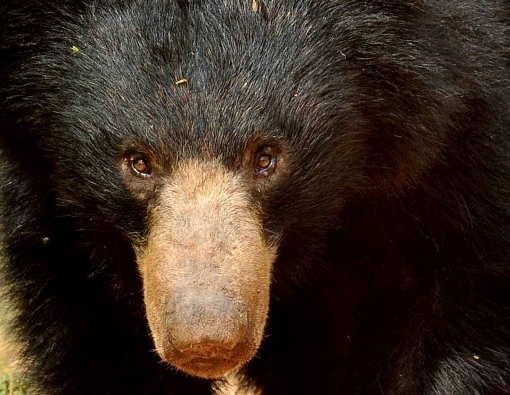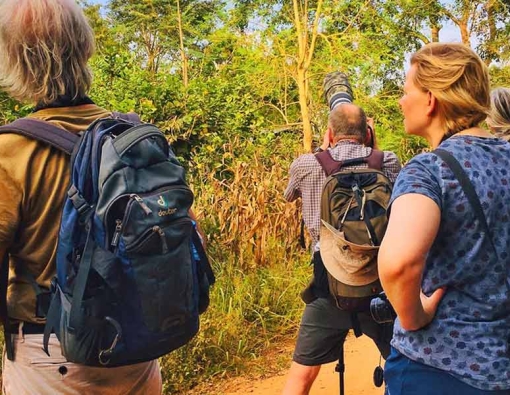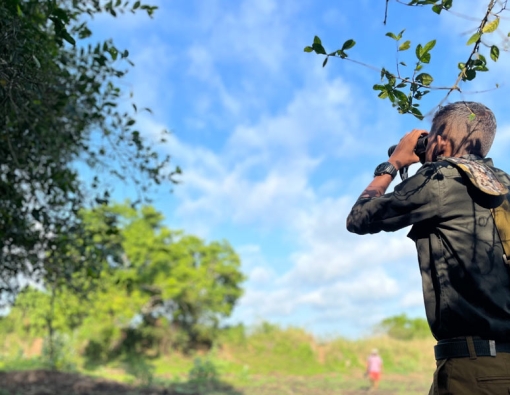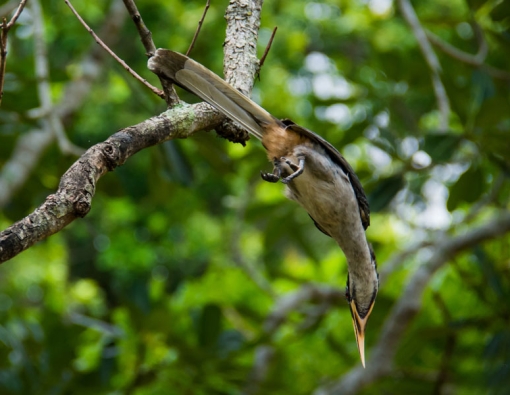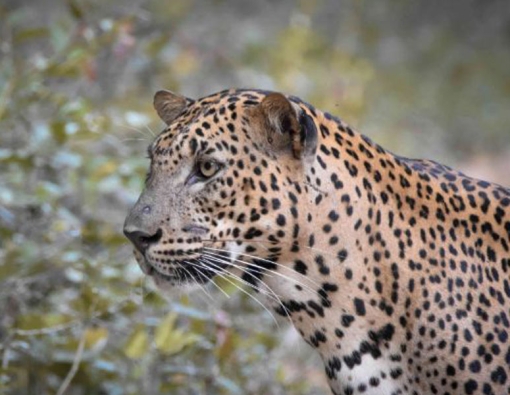Sri Lankan Tuskers in Musth
Sri Lankan Tuskers in Musth
Nature’s Gentle Giants Turned Titans
In the wilds of Sri Lanka, the majestic sight of a tusker—an adult male elephant with elongated ivory tusks—stirs awe and reverence. At Big Game Camps, guests have the privilege of witnessing these extraordinary creatures in their natural habitat, including the rare and intense phenomenon of musth, a phase where dominance, power, and raw instinct take center stage.

The Beauty of Sri Lankan Tuskers
Sri Lankan elephants (Elephas maximus maximus) are a subspecies of the Asian elephant and are famed for their massive size and regal presence. Among them, tuskers are particularly revered. Unlike African elephants, where both males and females grow tusks, only a small percentage of Sri Lankan males possess these magnificent ivory extensions. This makes tuskers a rare and celebrated sight, even more so when they are seen during the musth phase.
At Big Game Camps, situated near prime national parks like Yala, Udawalawe, and Wilpattu, spotting a tusker is often the highlight of a safari. Watching these gentle giants roam the grasslands or wade through shimmering waterholes is a moment etched in memory.
What is Musth? The Transformation

Musth (pronounced must) is a natural biological condition unique to adult male elephants. Occurring annually and lasting anywhere from a few weeks to months, it is marked by a dramatic surge in testosterone levels—up to 60 times higher than normal! This hormonal spike transforms these otherwise calm and social animals into aggressive and restless titans, driven by a primal urge to establish dominance and seek out mates.
Signs of a Tusker in Musth
When a tusker enters musth, it’s almost as if nature flips a switch. Here’s what you might notice:
- Swollen Temporal Glands: These glands, located between the eyes and ears, ooze a dark, pungent liquid, a telltale sign of musth.
- Constant Urine Dribbling: Elephants in musth leave a visible trail, marking their territory and signaling their status.
- Behavioral Change: Normally placid tuskers become unpredictable, challenging rivals, and often isolating themselves.
- Physical Display: Their posture becomes more imposing, heads held high, ears flared, and tusks prominently displayed.
Seeing a tusker in musth is both exhilarating and humbling. At Big Game Camps, expert naturalists guide guests during safaris to observe these powerful creatures from a safe and respectful distance. Our team ensures that the experience is educational and awe-inspiring while prioritizing safety—for both guests and the elephants.

Why Musth Matters: Nature’s Strategy
Musth is nature’s way of selecting the strongest and fittest males for breeding. During this period, tuskers assert dominance over other bulls, often clashing in dramatic (but rarely fatal) displays of strength. These battles determine access to females, ensuring that the next generation inherits the most robust genes.
Interestingly, female elephants are known to prefer males in musth as mates because the condition signals peak physical fitness and virility. In this way, musth plays a crucial role in maintaining the health and strength of elephant populations.
The Big Game Safari Experience
At Big Game Camps, the opportunity to observe tuskers in musth is a privilege that few wildlife enthusiasts get to experience. Our safari adventures are conducted responsibly, with an emphasis on conservation and education. Spotting a tusker displaying its heightened power—whether standing majestically near a waterhole or walking purposefully through the grasslands—is an unforgettable moment that connects you to the raw beauty of the wild.
Imagine this: The sun is setting over the national park, casting golden hues across the plains. Suddenly, a lone tusker emerges from the trees, his massive frame silhouetted against the light. The telltale signs of musth are clear—the glistening streak of liquid on his face, the powerful sway of his walk, and the quiet intensity in his demeanor. It’s a rare and humbling moment that reminds us of the sheer power and beauty of nature.
Conservation: Protecting Sri Lanka’s Tuskers
Sadly, tuskers face growing threats in Sri Lanka due to habitat loss, human-wildlife conflict, and illegal poaching. Their tusks, which make them so revered, also make them targets. Conservation efforts led by national parks and responsible safari operators, like Big Game Camps, play a vital role in protecting these giants and their habitats.
By visiting Big Game Camps, you contribute to the preservation of Sri Lanka’s wildlife. Your safari is more than just an adventure; it’s an opportunity to support eco-tourism and raise awareness about the importance of protecting endangered species like the tusker.
Experience the Wild with Big Game Camps
If you’re seeking an authentic, up-close experience with Sri Lanka’s iconic wildlife, Big Game Camps is your perfect base. Our safaris are designed to immerse you in nature’s wonders while maintaining the utmost respect for the animals and their environment.
Witnessing a tusker in musth is a moment of raw power and natural beauty that stays with you forever. Join us on an unforgettable journey into Sri Lanka’s wilderness, where every encounter reminds you of the magic of the wild.
Come, let the tuskers tell their story, and let the wild stir your soul.

- +94 (0)70 2228 222
- [email protected]
- Mon-Fri 8.30 am t0 5.30 pm



